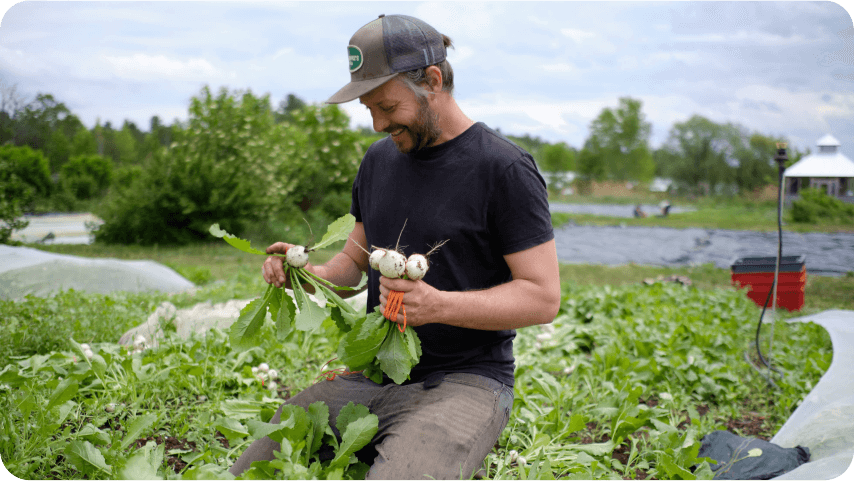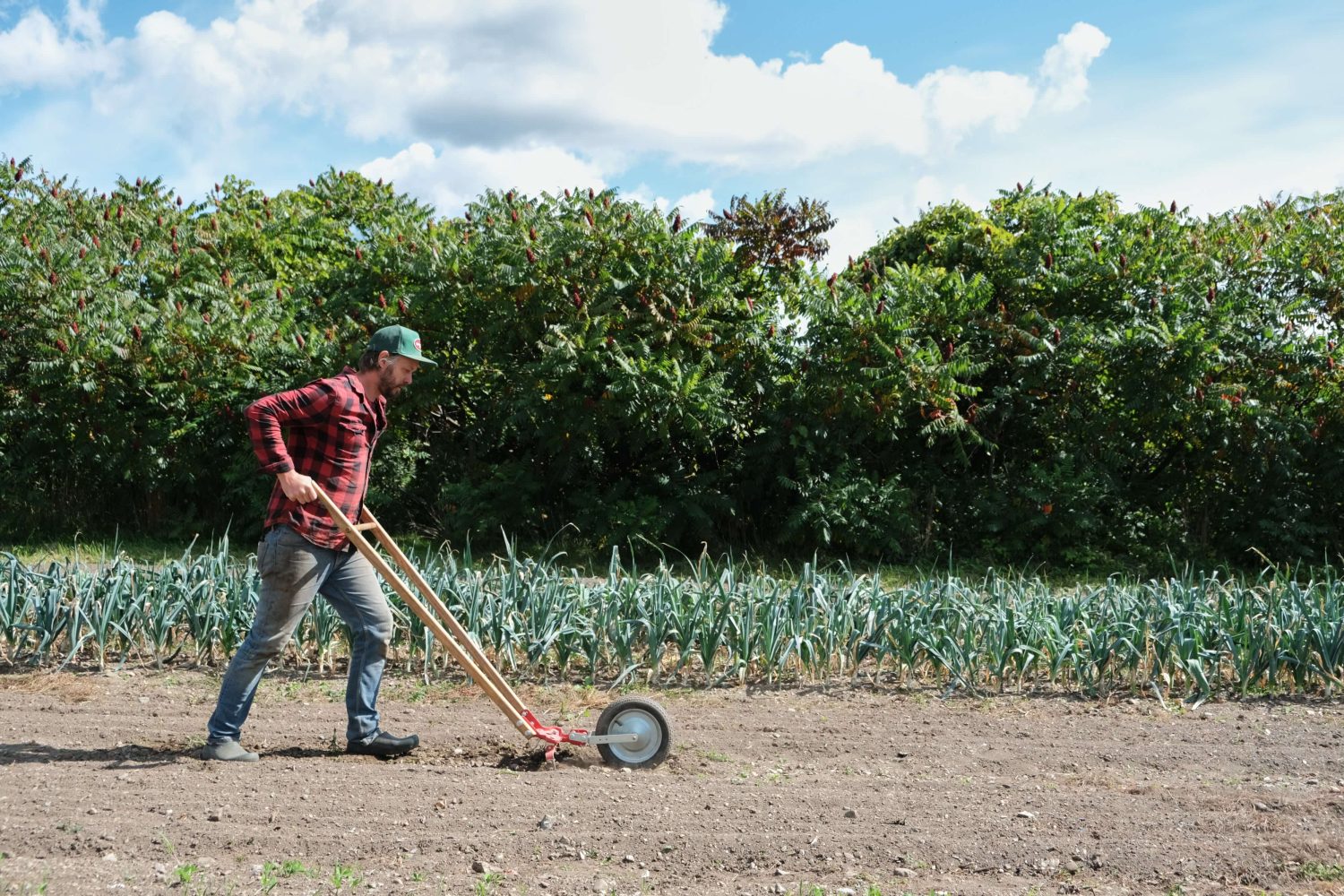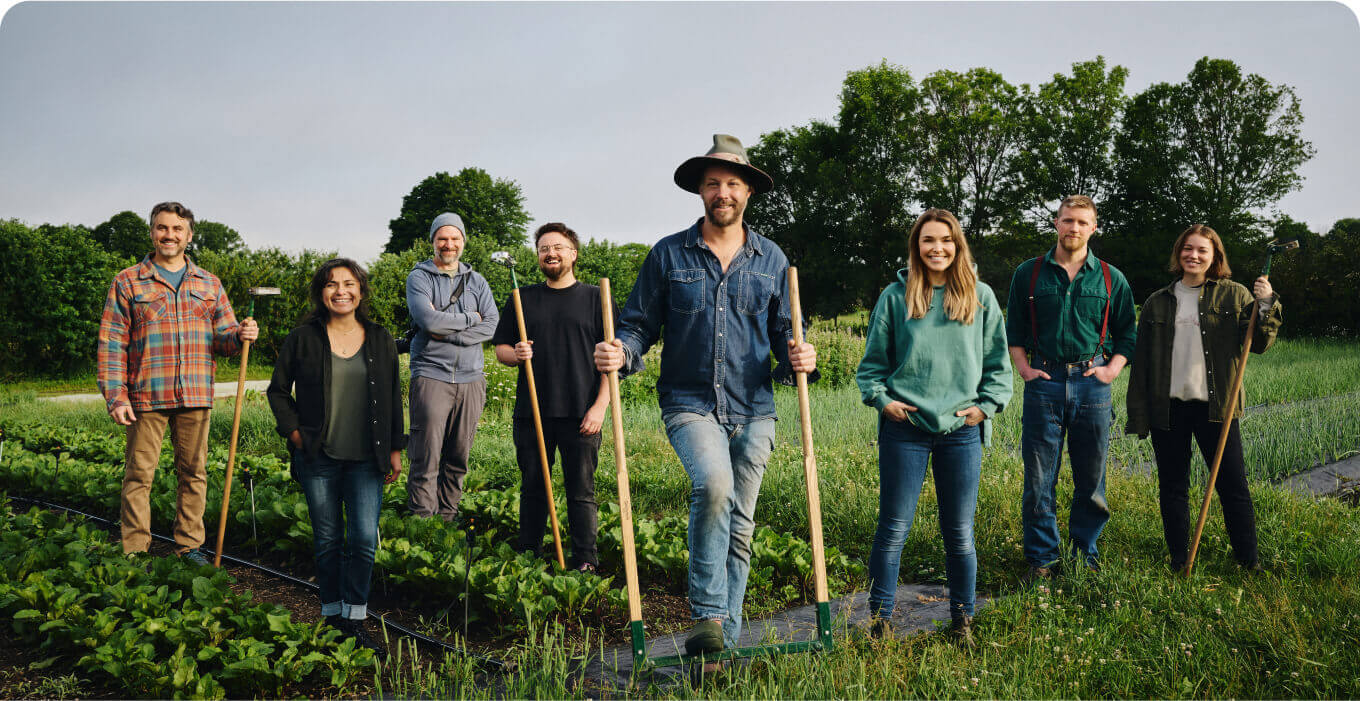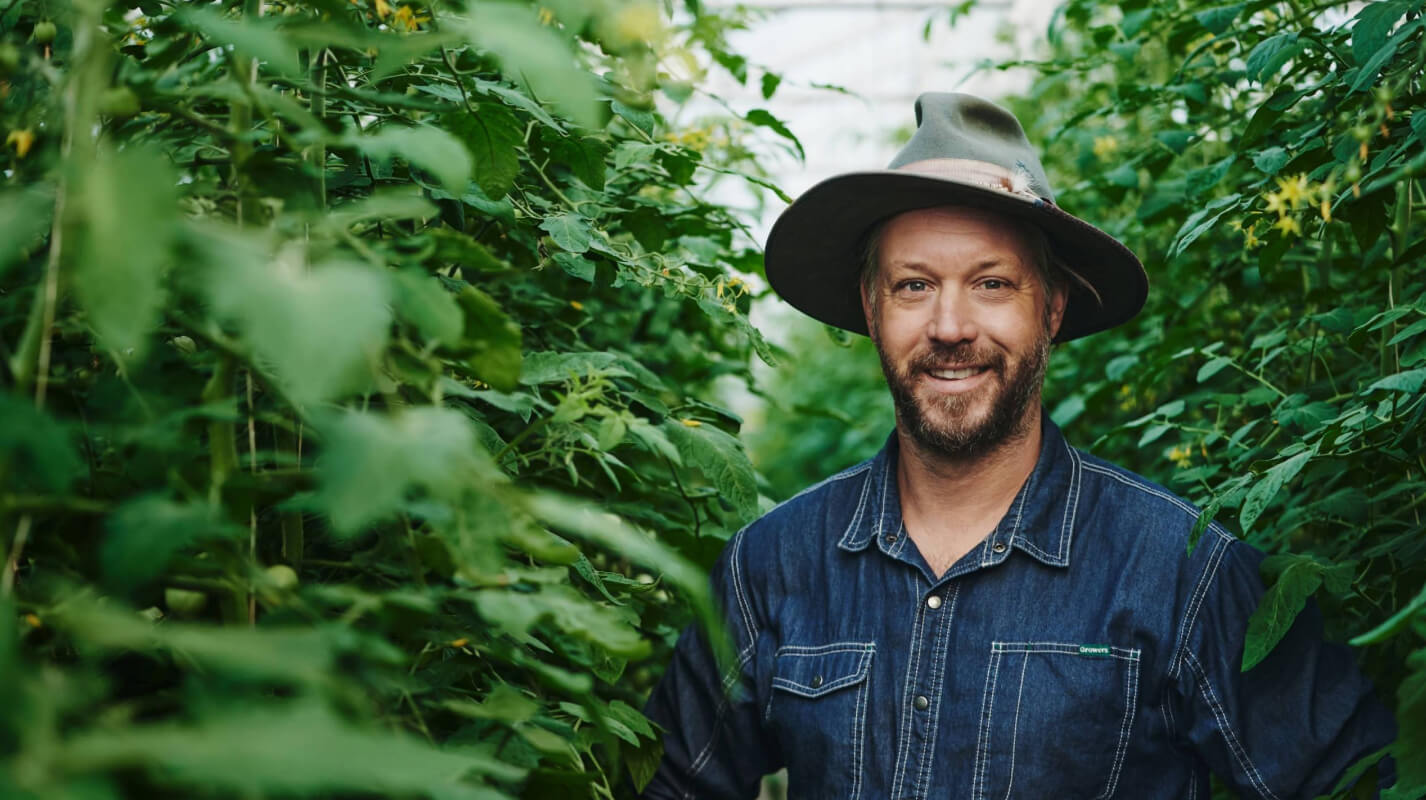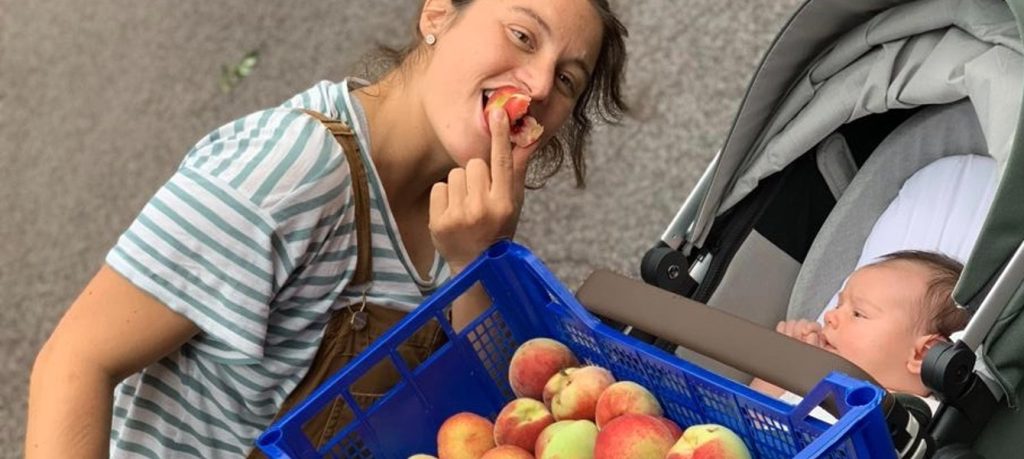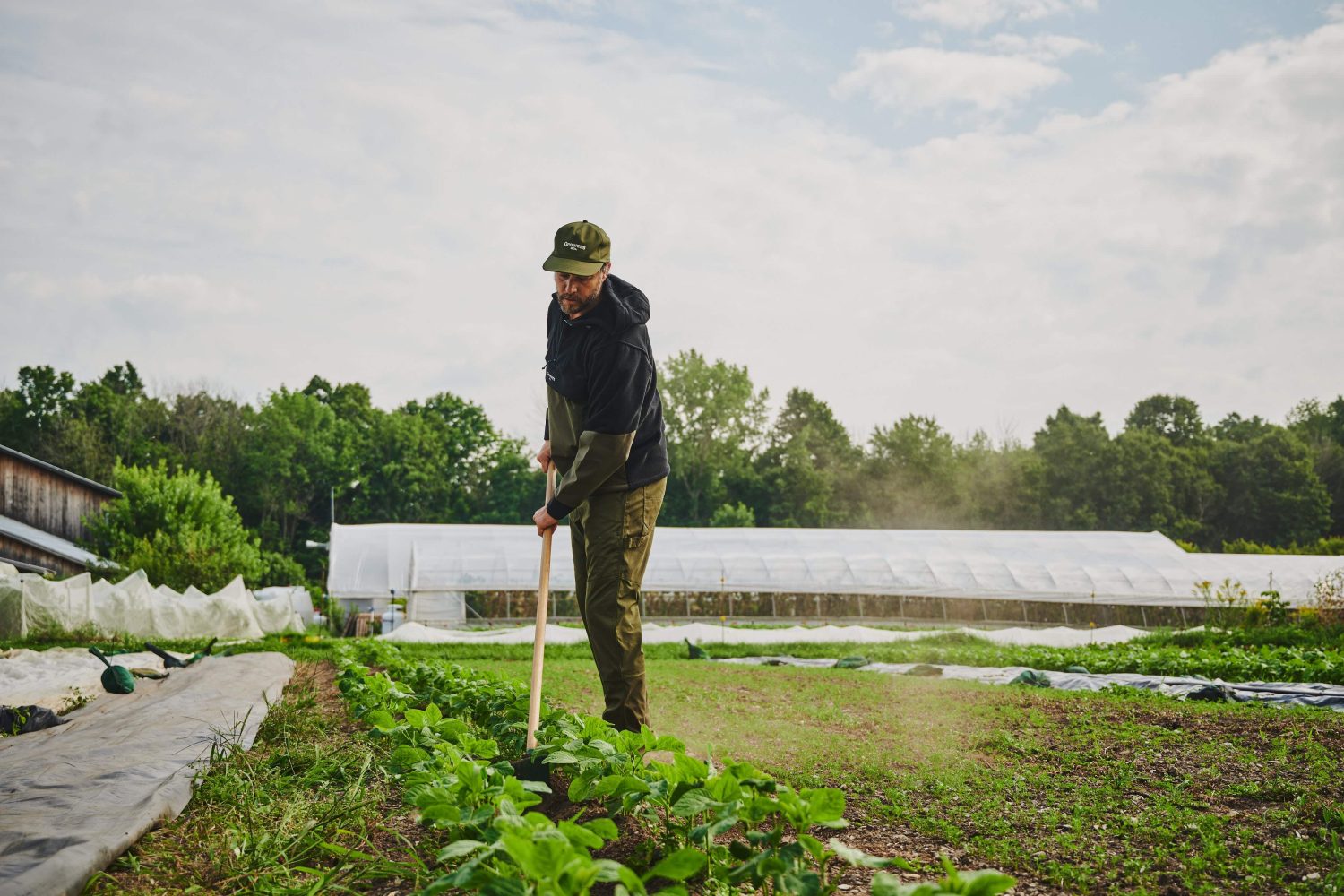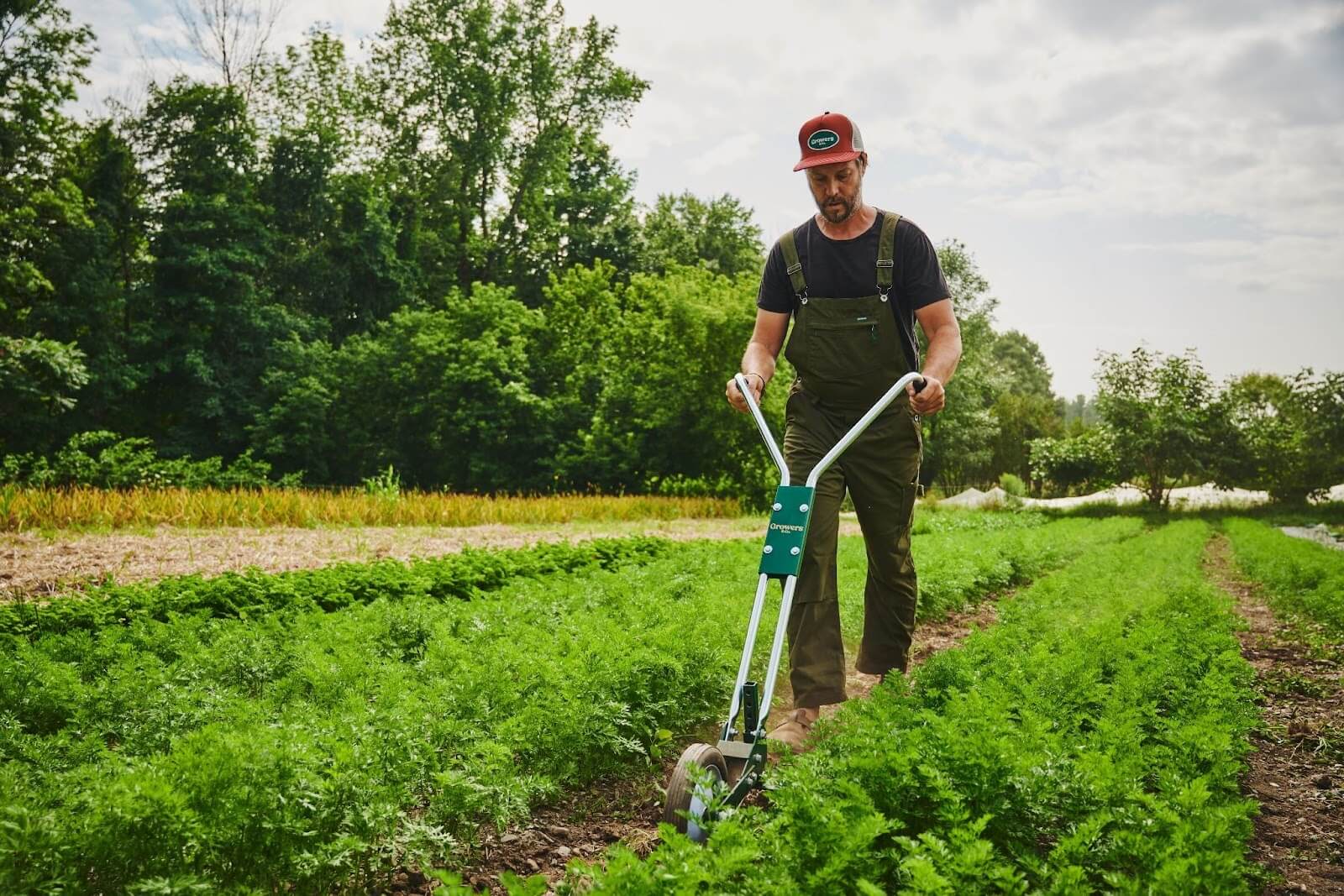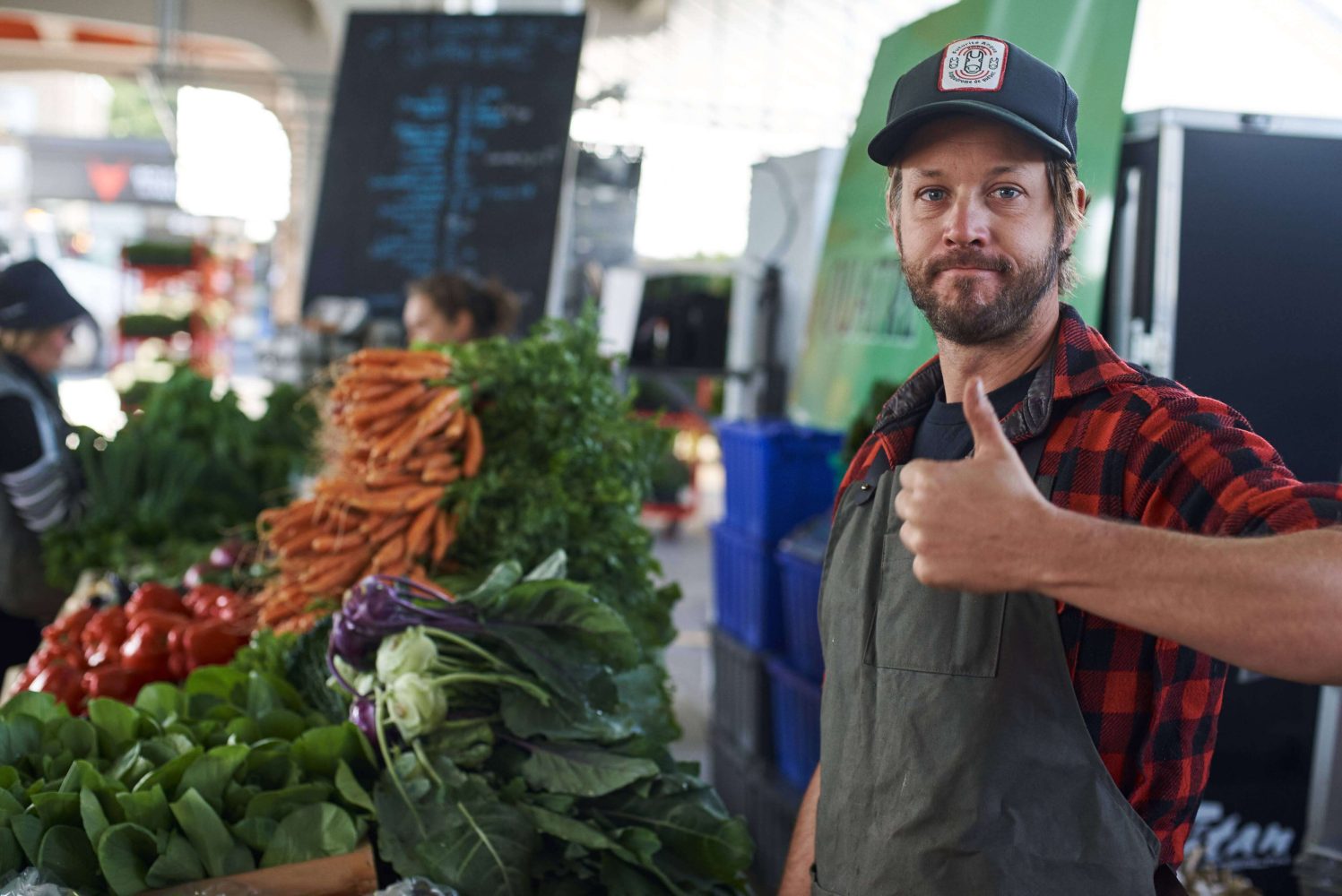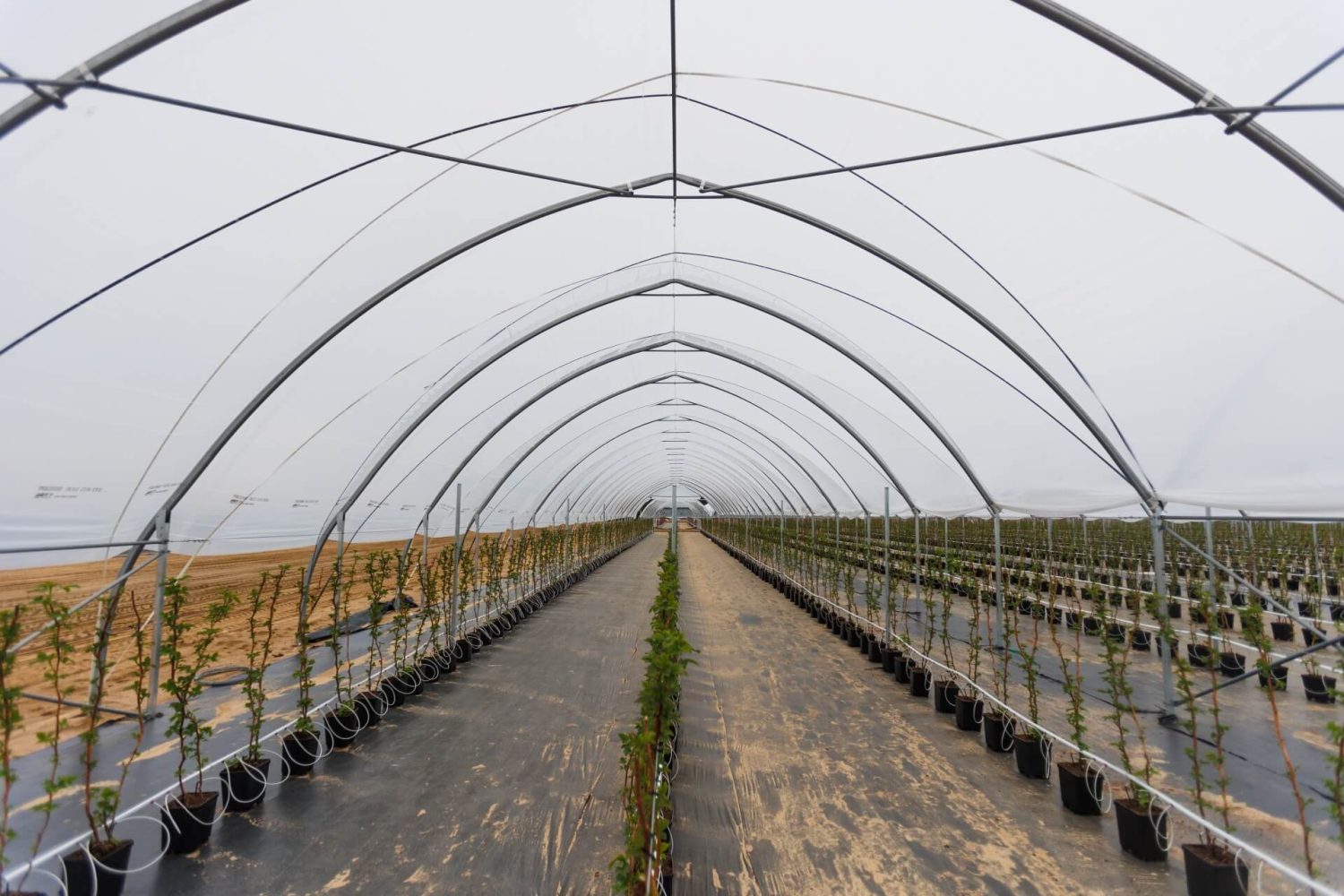For many growers, the opportunity to raise their families with fresh, healthy food, easy access to nature, and a connection to the land is a significant part of why they chose market gardening as a profession. But balancing family and farming is not always easy: both jobs require a great deal of time, care, a willingness to adapt to the unexpected, and both benefit from being supported by a community.
We spoke to five market gardeners with children of different ages about their experiences, challenges, and tips. We invite you to embark on this journey with them via this miniseries of five articles that chronicle the biggest takeaways from those conversations.
Make Sure You Are Supported by a Community
Being able to share childcare is hugely important. While children of different ages can participate in many farm tasks, there are some activities on the farm that are dangerous, and there are also some high-intensity tasks where speed is key. Devoting 100% of your attention to the task at hand is important in these moments. Being supported by a community and having access to childcare while you’re at the farm, whether it’s split with a partner, family or friends, or daycare, is very valuable.
Jessey Njau and Misha Shodjaee of Zawadi Farm in Southern Ontario highlighted how important having strong community support has been for their project. Jessey, originally from Kenya, points out that while many North Americans live in a society that prioritizes single-family homes and the nuclear family, this way of living is rare worldwide. In Africa, there is much more community support and engagement in family life and agriculture. Having more people around is helpful both in creating childcare solutions and finding help on the farm.
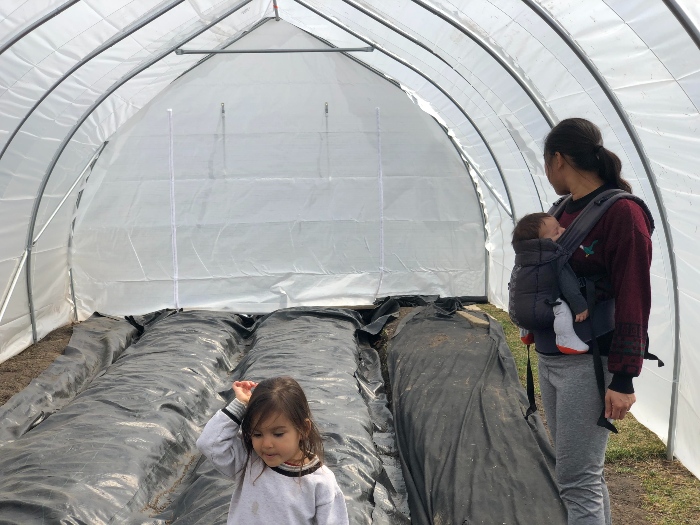
Have Creative Childcare Solutions
Depending on your location and the policies in your region, accessing affordable childcare is no easy task, and it sometimes requires creative solutions. Anna Raines of Raines and Sun Farm in Kentucky has an interesting initiative: she allows homeschooling families to come to her farm for volunteer and learning experiences in an agricultural setting. Her kids really enjoy having other kids around. They get to show them around and they entertain each other allowing the adults to do farm chores.
In rural areas where affordable childcare is hard to find, growers have also experimented with childcare cooperatives – a group of parents gets together to form a stable community of families who rotate daily care of the children. This is an option that requires attention and investment but can allow for more freedom and flexibility in the long term.
Don’t Try to Do Everything Yourself
Farmers and homesteaders can fall into the unfortunate trap of thinking they should or have to do everything themselves. When parenting is added into the mix, you may end up with people who feel like they have the world on their shoulders, and are responsible for a never-ending to-do list.
When her son Pacifico was born in July, Myrtha Zierock had to decide which of her tasks she could delegate. Her farm was only in its second season and had largely been a one-woman operation, and with her son being born in the middle of the season, she evaluated which tasks (harvesting, planting, delivering) she was able to delegate to family and an intern, and which tasks (communication with restaurant clients), she had to keep doing herself. Texting with chefs to receive their orders was one task she was able to do while breastfeeding, while the majority of farm tasks she supervised from afar, having trained her family and intern beforehand. Being supported by a community was one of the reasons Myrtha was able to keep farm operations running while she nurtured her newborn son.
Evaluate your own situation. Which tasks could you outsource or get support for? Whether it’s at the farm or at home, take an honest look at what you love doing, and what you want to be spending time on. These things are what will bring you joy, energy, and motivation. As for the other things, try to make a list of what can be done either by an external professional or by a friend, family member, employee, or volunteer.
Do you hate bookkeeping? Are you spending more time than you want delivering your vegetables rather than growing them? Do you need support keeping your house clean during the farming season? Choosing to hire someone who can complete the tasks that bring you the most stress can be a lifesaver for your mental health and can help you focus on the things you love and excel at.
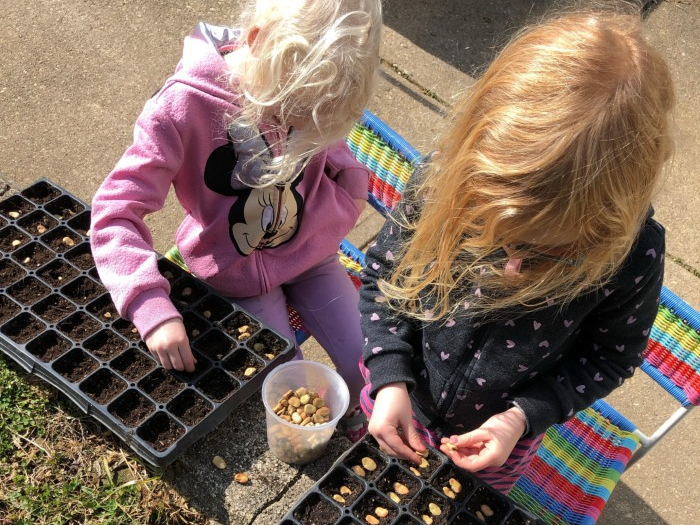
Breathe and Be Mindful of External Forces
Of course, for many, the COVID-19 pandemic only intensified the difficulty of striking a balance between family and farming. Ben Street of Street Fare Farm and his wife had their first baby in March of 2020, right at the beginning of the pandemic, and their second child was born in March 2021. While the pandemic created a boom for his sales, it also resulted in many challenges for a young family with a newborn. With family unable to visit and offer childcare, and staffing changes due to the pandemic, Ben was left trying to provide for his customers’ huge interest in local food, while also being present for his newborn son: “They say it takes a village, but that’s hard to access right now”.
Recognizing the limitations of your particular situation may also be important for your mental health: there are only so many hours in a day, and no one benefits when you try to be a superhero. Be realistic about what you can do in a day if you are the sole child care provider.
Community Is Everything
“You cannot farm in isolation, it will destroy you. You can’t do it alone.” Jessey and Misha of Zawadi Farm are clear on this point, and it is echoed by all of the market gardeners we spoke to. Being supported by a community, in-person and online, goes a long way to combat the sense of isolation that farming can sometimes generate.
As a new mother and lead farmer, Myrtha Zierock in Northern Italy spoke of how valuable exchanges with other new parents can be when things feel overwhelming. “Being open about what I’m going through, and hearing from other moms is so important to me right now – when I see how open others are about their struggles, I feel less alone.” Even if they sometimes feel unnecessary, these conversations and connections are all part of building a support network for the long term. Prioritizing connections with others is crucial to your success as a farmer and a parent.
Parenting and farming can be quite a journey! We have prepared a series of articles that will help you navigate those exciting experiences.
We invite you to consult the following articles:
